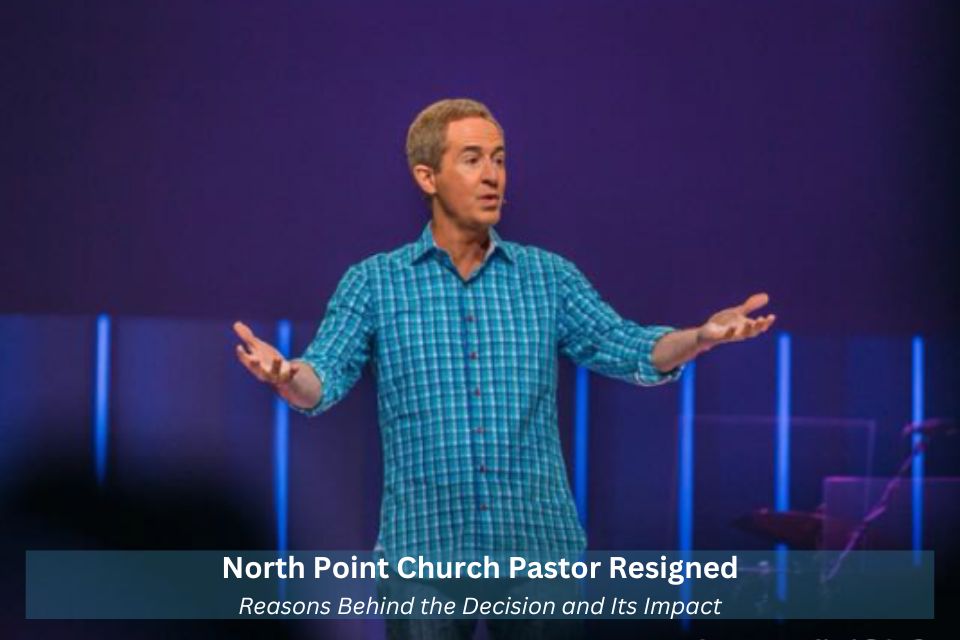
Why The North Point Church Pastor Resigned & Its Impact On The Community
- News
- 5 November 2024
In a surprising announcement, Pastor Andy Stanley, founder and leader of North Point Community Church, shared that he would be stepping down from his pastoral role. Known for his engaging sermons and modern approach to Christian teachings, Stanley’s decision has sparked widespread discussions within both his congregation and the broader Christian community. Here, we explore who Andy Stanley is, the circumstances leading to his resignation, and the implications for North Point Church and contemporary Christianity.
Who Is Andy Stanley?
Andy Stanley, born Charles Andrew Stanley, is a respected figure in the Christian community. As the founder and senior pastor of North Point Community Church, he played a significant role in shaping the church’s modern approach to faith. Stanley is the son of Charles Stanley, the prominent founder of In Touch Ministries and former senior pastor at the First Baptist Church of Atlanta. Following in his father’s footsteps, Andy Stanley dedicated his life to ministry but approached it with a focus on inclusivity and contemporary issues, which set him apart as a modern, sometimes controversial, Christian leader.
Andy Stanley Age & Appearance
Andy Stanley was born on May 16, 1958, making him 65 years old. Known for his relaxed and approachable demeanor, he often dresses in casual clothing during sermons, symbolizing his commitment to a welcoming church environment. His appearance reflects his mission: to make North Point Community Church a space where people feel comfortable exploring their faith without traditional barriers.
North Point Church Pastor Resigns: What Caused It?
Stanley’s resignation follows a recent sermon that stirred considerable debate. Delivered as part of a series called “When Gracie Met Truthy,” this sermon aimed to address complex themes of grace and truth in Christianity. Stanley used an example involving a married couple dealing with the discovery of one partner’s involvement with another man. This illustration, intended to highlight the delicate balance between grace and accountability, drew sharp reactions, particularly from those holding more conservative views on Christian teachings.
The issue gained further attention when R. Albert Mohler Jr., President of the Southern Baptist Theological Seminary, publicly criticized Stanley’s approach. Mohler’s criticism suggested that Stanley’s focus on forgiveness in the scenario could be seen as downplaying traditional doctrines on marriage and sexuality. This backlash underscored the ongoing tension between progressive and conservative views within the church.
Reaction To The Sermon
Stanley’s sermon sparked polarized reactions. Supporters praised his willingness to address challenging social topics, appreciating his effort to create a church environment where everyone feels welcome. However, more conservative members of the Christian community were unsettled, arguing that his words deviated from traditional biblical teachings. These critics expressed concern that Stanley’s progressive approach might influence others to adopt views they felt contradicted scriptural truths.
Resignation Announced By Andy Stanley
In a move that shocked many, Stanley announced his resignation on May 1. He explained that his decision was influenced by personal reasons and a desire to explore new paths. However, his departure left the congregation with mixed feelings—some felt a sense of loss, having grown to rely on his leadership, while others saw this as a turning point for the church to reevaluate its principles and direction.
Impact Of The Resignation
Stanley’s departure marks a significant shift for North Point Community Church. Known for his charismatic and relatable leadership, he had become a foundational figure for the church’s identity. His resignation raises questions about the church’s future, including how it will navigate social issues moving forward. Interim leadership has been put in place, but the congregation now faces uncertainty as it awaits new, permanent guidance. Stanley’s departure also forces the church to reflect on its mission and values, potentially leading to a reevaluation of how it approaches contemporary issues.
What It Means For The Christian Community
Stanley’s resignation holds broader implications beyond North Point. It highlights a larger conversation within Christianity about balancing tradition with the evolving beliefs and needs of today’s congregants. As modern social issues increasingly intersect with faith, churches often find themselves divided over how to respond. Stanley’s resignation underscores the challenges faced by church leaders as they try to address progressive social values while remaining true to traditional Christian teachings. His departure serves as a reminder of the pressures religious leaders face when navigating these cultural divides.
In Summary
Pastor Andy Stanley’s resignation from North Point Community Church signifies a pivotal moment in the church’s history. His decision followed a sermon that sparked discussions on the tension between grace and biblical teachings on relationships, revealing divisions within his congregation and the broader Christian community. While Stanley’s departure has led to a time of uncertainty for North Point, it also presents an opportunity for the church to reassess its mission. This transition may influence other churches grappling with similar challenges, illustrating the complexities of modern religious leadership.
FAQs
Why did Pastor Andy Stanley resign from North Point Community Church?
Stanley resigned due to personal reasons and the desire to explore new opportunities, though his recent controversial sermon played a role in the decision.
What was the controversy surrounding Andy Stanley’s sermon?
Stanley’s sermon addressed grace and truth in a way that some viewed as too progressive, sparking debate within the Christian community.
What does Andy Stanley’s resignation mean for other Christian churches?
Stanley’s resignation illustrates the challenges faced by churches as they navigate modern social issues, which may prompt other churches to reassess their own approaches.



